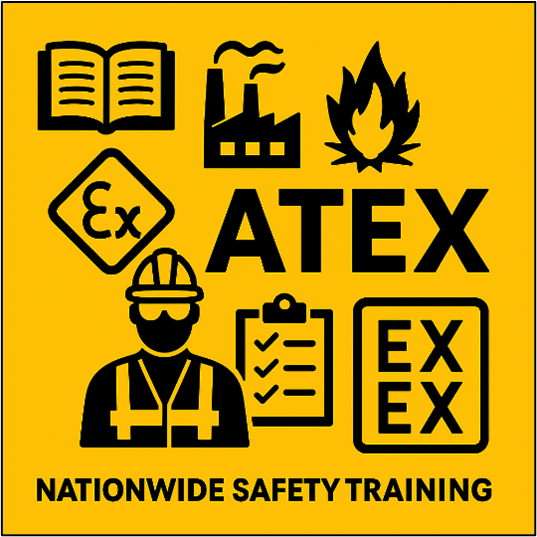


This half-day ATEX Safety Awareness Training course provides participants with essential knowledge of explosive atmospheres, the associated risks, and the regulatory requirements under ATEX legislation.
The ATEX Safety course ensures that workers and supervisors understand how to identify hazardous zones, assess ignition sources, and manage the risks effectively through appropriate equipment, signage, and safety systems. Suitable for those working in or around potentially explosive atmospheres such as fuel storage, chemical handling, or manufacturing processes.
COURSE OBJECTIVES
By the end of this course, participants will be able to:
- Understand what ATEX is and why it matters.
- Recognise the hazards and risks in explosive atmospheres.
- Identify and classify hazardous zones (gas and dust).
- Understand the requirements for ATEX-rated equipment and PPE.
- Know the employer and employee duties under Irish legislation.
- Apply safe systems of work and control measures.
COURSE CONTENT
The course outline includes, but is not restricted to, the following:
- Introduction to ATEX and explosive atmospheres
- Legal framework: EU Directives, Irish Regulations
- Characteristics of explosive substances (gases, vapours, mists, dusts)
- Hazardous area classification: Zones 0, 1, 2, 20, 21, 22
- Common ignition sources and how to control them
- Equipment categories and ATEX markings (Ex, T ratings, etc.)
- Risk assessment under ATEX/DSEAR
- Control measures, bonding/earthing, signage, permits to work
- Emergency procedures and incident response
- Training, supervision, and ongoing responsibilities
COURSE FORMAT
This ATEX Safety Course is delivered through a combination of presentations, group discussions, interactive activities, and group tasks. The course encourages active participation and engagement to enhance the learning experience.
Participants will be provided with access to course materials and resources including course notes, guidance documents, videos, etc.
ASSESSMENTS
Participants will complete a short theory-based knowledge check to assess their understanding of the core concepts.
WHO SHOULD ATTEND
Anyone working in environments where explosive atmospheres may occur, including production operatives, maintenance workers, engineers, and safety representatives.





